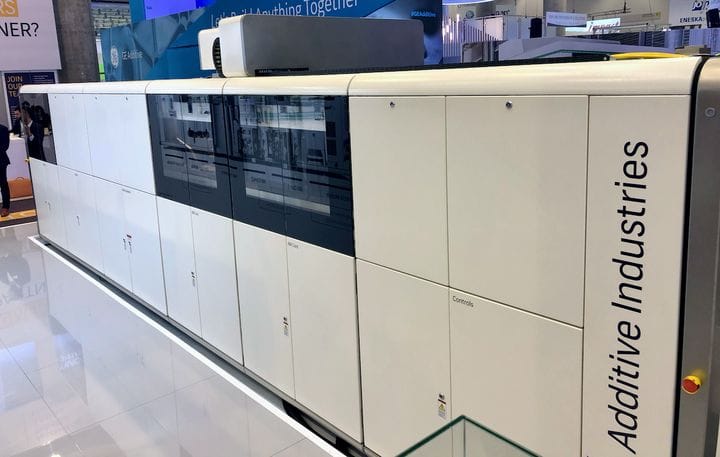
Additive Industries announced a partnership with Makino, and this should enable the company to provide significant additional functionality.
The Eindhoven-based company produces a sophisticated metal 3D printing system, the MetalFAB1. The unique feature of the system is that it’s composed of modules that can carry a 3D print through several steps in the lifecycle automatically.
This concept was the key behind the launch of the company, which was one of the first to recognize that practical metal 3D printing was more than just the printer itself. There are multiple steps required, such as cooling, de-powdering, post-processing and more.
They created the modular MetalFAB1 system that can be configured to meet the needs of each client, and it’s been quite successful, as Additive Industries is now one of the leading metal 3D print providers.
Now the new partnership could introduce some important functionality. Additive Industries says:
“Today 3D metal printer manufacturer Additive Industries and Makino a manufacturer of high-quality milling machines signed a Letter of Intent (LOI), for a joint project to develop integrated process chains anticipating on the upscaling of industrialized Additive Manufacturing.
Instead of treating additive manufacturing of metal parts and post processing as separate processes, the two companies aim to develop a process chain where their technologies seamlessly work together.
Additive Industries and Makino will work on the development and commercialization of hybrid process chains supported by the in-depth process know-how and machine design experience of both companies.”
This is an intriguing partnership, as one could imagine several different benefits from joining the two technologies together. It’s surprising this hasn’t been done previously, as most metal 3D printing workshops also include a 5-axis metal CNC milling system that’s used to help finish the parts after 3D printing.
3D printed metal parts typically have a somewhat rough surface and while that might be suitable for many applications, sometimes perfectly smooth surfaces can be required. There’s also the matter of finishing connection holes, some of which may be threaded, and complete removal of metal support structures generate during 3D printing.
I can well imagine a new kind of module from Additive Industries that could fit on their existing MetalFAB1 configurations to add that kind of functionality. Such a step would take the unit to a far higher level of productivity, as even more of the production workflow would remain within the MetalFAB1 system before completion.
MetalFAB1 has significant monitoring and analysis capabilities, and I would think that any CNC milling modules could become part of that control system. Additive Industries has made their existing processes quite efficient through the use of data, and there’s no reason to think this could not also be done with milling functionality if added to the MetalFAB1.
